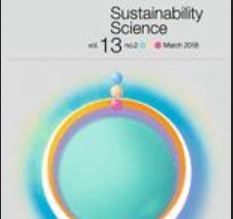
By
Abstract
The present article analyses a unique database of 220 dam-related environmental conflicts, retrieved from the Global Atlas on Environmental Justice (EJAtlas), and based on knowledge co-production between academics and activists. Despite well-known controversial, social, and environmental impacts of dams, efforts to increase renewable energy generation have reinstated the interest into hydropower development globally. People affected by dams have largely denounced such ‘unsustainabilities’ through collective non-violent actions. Nevertheless, we found that repression, criminalization, violent targeting of activists and assassinations are recurrent features of conflictive dams. Violent repression is particularly high when indigenous people are involved. Indirect forms of violence are also analysed through socio-economic, environmental, and health impacts. We argue that increasing repression of the opposition against unwanted energy infrastructures does not only serve to curb specific protest actions, but also aims to delegitimize and undermine differing understanding of sustainability, epistemologies, and world views. This analysis cautions that allegedly sustainable renewables such as hydropower often replicates patterns of violence within a frame of an ‘extractivism of renewables’. We finally suggest that co-production of knowledge between scientists, activists, and communities should be largely encouraged to investigate sensitive and contentious topics in sustainability studies.
Link
https://link.springer.com/article/10.1007/s11625-018-0558-1
Keywords
Hydroelectric dams, Violence, Extractivism, Ecological distribution conflicts, Renewable energies, Co-production of knowledge
How to cite
Del Bene, D., Scheidel, A. & Temper, L. Sustain Sci (2018). https://doi.org/10.1007/s11625-018-0558-1
Further information
This article is part of the Special Feature: Case Report The EJAtlas: Ecological Distribution Conflicts as Forces for Sustainability in Sustainability Science

The project ENVJUSTICE has received funding from the European Research Council (ERC) under the European Union’s Horizon 2020 research and innovation programme (grant agreement No. 695446)